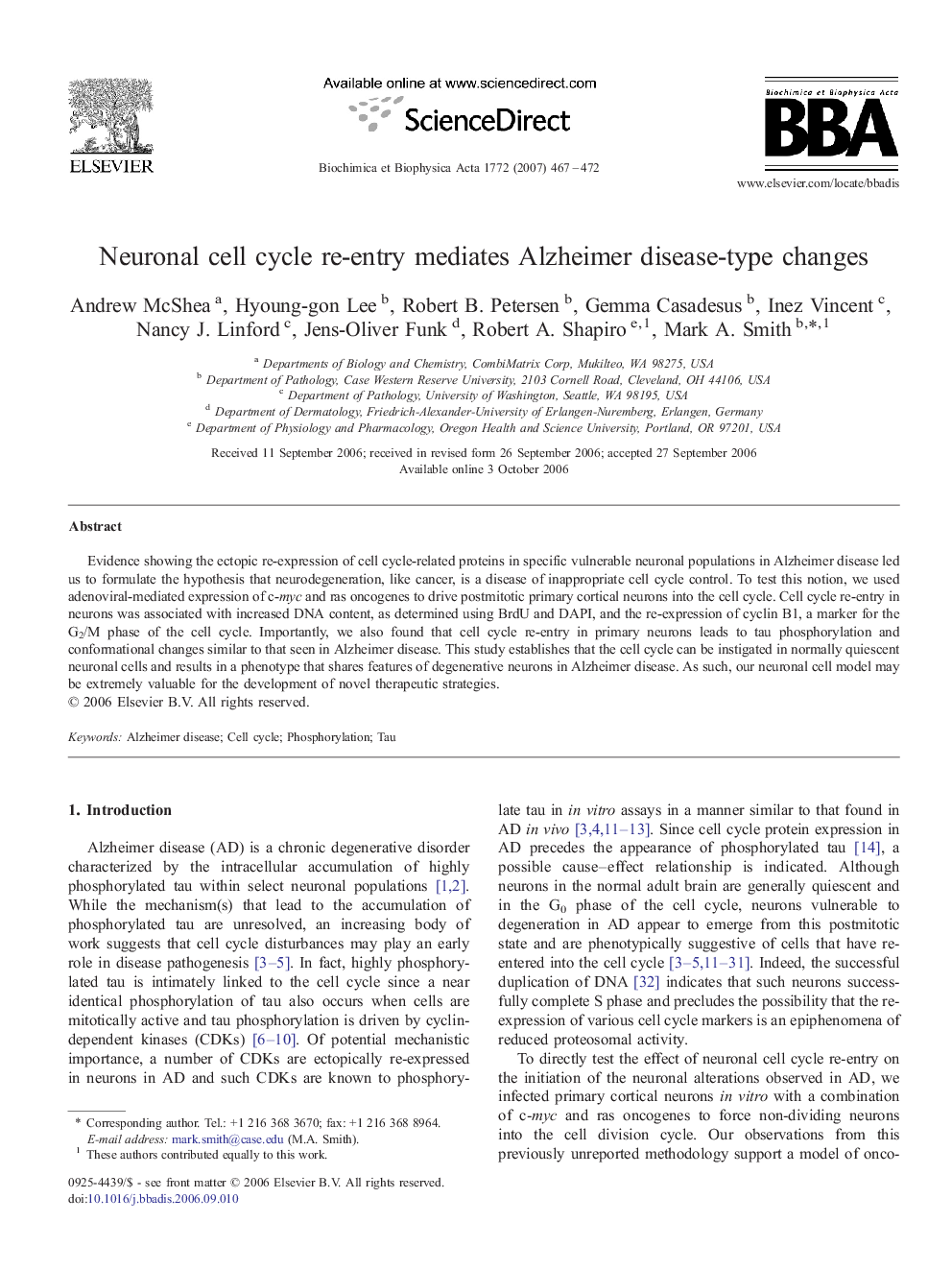| Article ID | Journal | Published Year | Pages | File Type |
|---|---|---|---|---|
| 1905824 | Biochimica et Biophysica Acta (BBA) - Molecular Basis of Disease | 2007 | 6 Pages |
Evidence showing the ectopic re-expression of cell cycle-related proteins in specific vulnerable neuronal populations in Alzheimer disease led us to formulate the hypothesis that neurodegeneration, like cancer, is a disease of inappropriate cell cycle control. To test this notion, we used adenoviral-mediated expression of c-myc and ras oncogenes to drive postmitotic primary cortical neurons into the cell cycle. Cell cycle re-entry in neurons was associated with increased DNA content, as determined using BrdU and DAPI, and the re-expression of cyclin B1, a marker for the G2/M phase of the cell cycle. Importantly, we also found that cell cycle re-entry in primary neurons leads to tau phosphorylation and conformational changes similar to that seen in Alzheimer disease. This study establishes that the cell cycle can be instigated in normally quiescent neuronal cells and results in a phenotype that shares features of degenerative neurons in Alzheimer disease. As such, our neuronal cell model may be extremely valuable for the development of novel therapeutic strategies.
